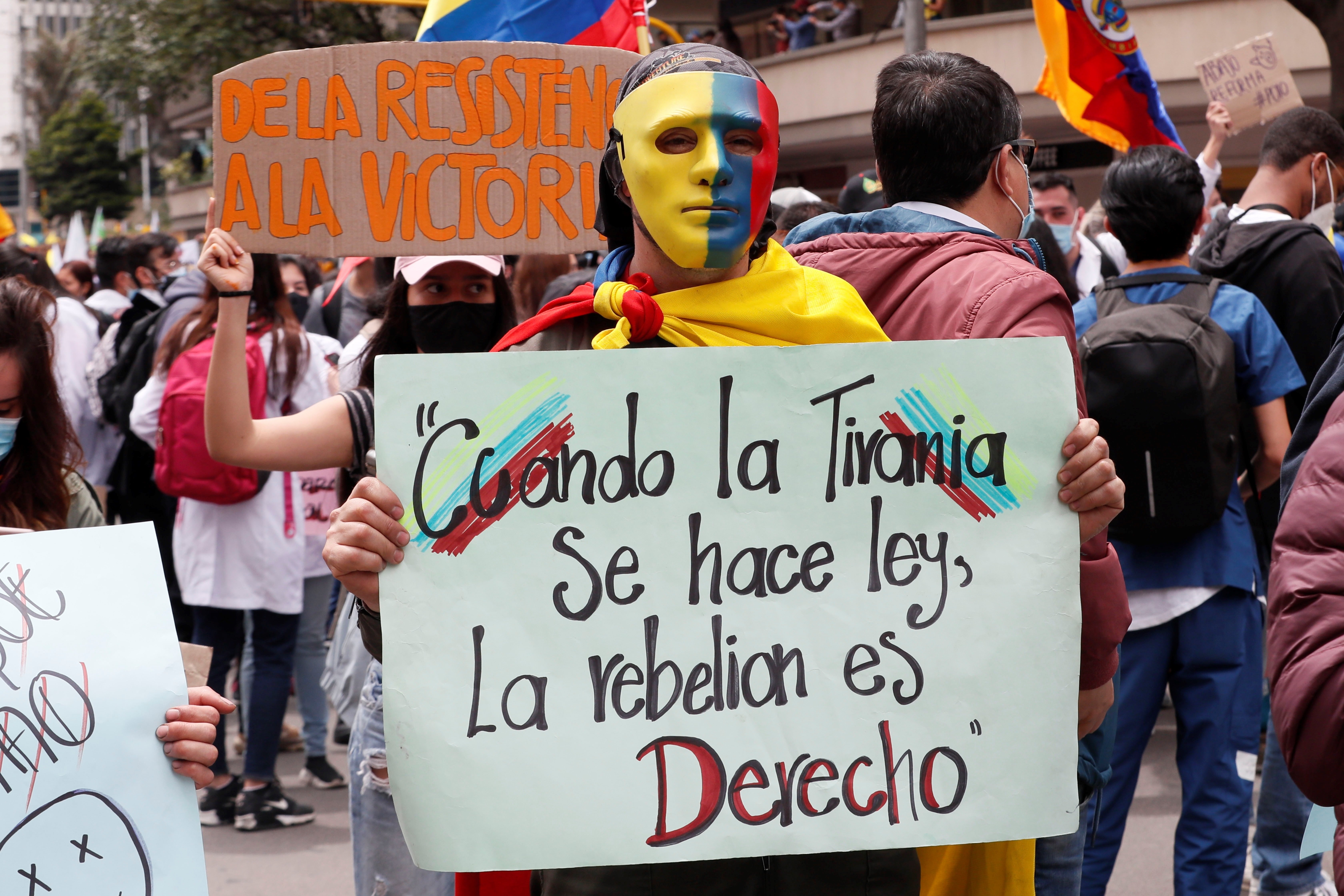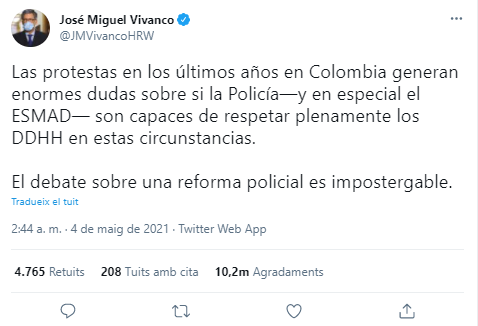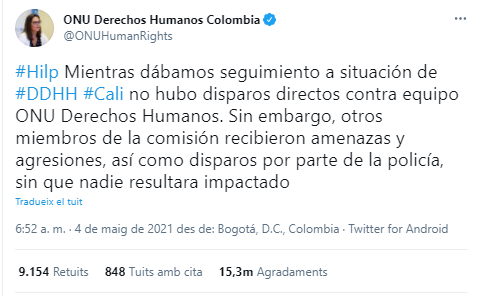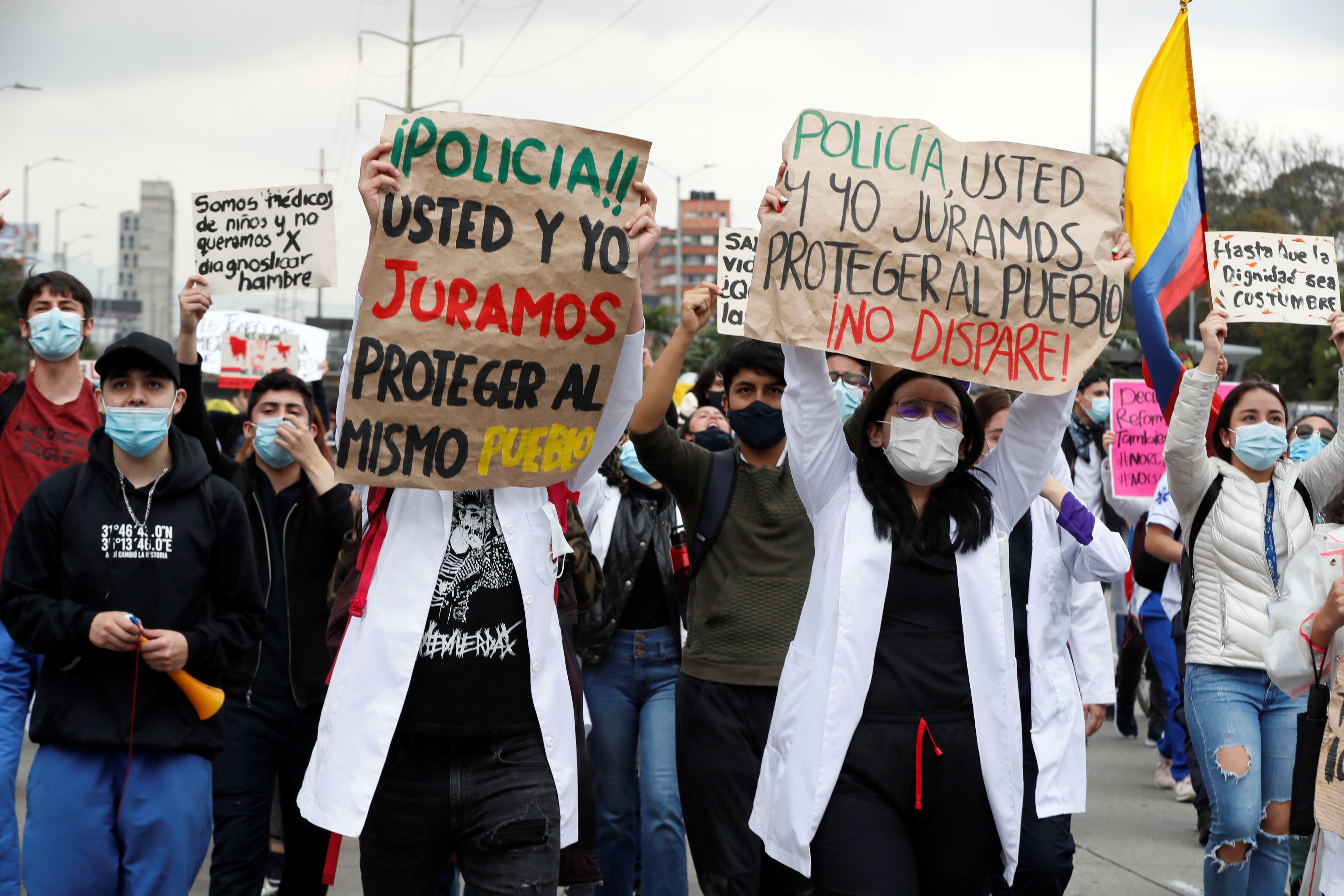The streets of Colombia have exploded. It's now two weeks since widespread protests began in the Latin American county which have received a brutally violent response from police, with a growing toll of deaths and people who have disappeared, as protesters express all their anger on the streets of the country's major cities.
The detonator for these mobilizations was the proposal for tax increases by the government of president Iván Duque. This was a direct slap in the face for the large numbers of people already economically desperate due to the crisis produced by the pandemic. Colombian finance minister Alberto Carrasquilla explained that this fiscal initiative was intended to increase tax income by 6 billion dollars in order to continue promoting social assistance programmes for the poorer classes, especially in the context of the current crisis. Specifically, the Ingreso Solidario scheme, whose intention is to give financial support to households in conditions of economic vulnerability, was cited by the government to justify the tax changes. These reforms, however, would have paradoxically implied an increase in the prices of basic necessities, petrol, an expansion in the base income levels liable for income tax and an increase in VAT on services such as funeral homes and internet services, which would be another assault on a population already struggling to get by.
This was the basic reason that brought Colombians out to the streets on April 28th to begin protests that have not stopped, rejecting the reform proposal which adds new insult to previous injuries. Colombian society was already labouring under conflictive issues such as proposals for health system reforms, social unrest over the non-compliance with the peace agreements between the government and the rebel organization FARC (Revolutionary Armed Forces of Colombia), the murders of social leaders, corruption and the management of the pandemic. Colombia is the country with the third highest total of Covid-19 cases in South America, in absolute numbers.
The main cities of the country were where the protests began after April 28th, and are also where they have persisted: Cali, Bogotá, Pereira and Cartagena are some of the key centres where mobilizations and riots are having the most impact. It is hardly surprising given that cities like Cali, the country's third largest, also contain the populations with highest levels of inequality and poverty, where hunger is a daily reality for many. Thus, with people who feel they have nothing to lose, there are situations of great tension in which robberies, looting, vandalism and attacks on banks and media outlets are a reality during these protests. The Commune 20 district of Cali, known as Siloé, underwent a terrifying and destructive night on May 3rd, and a week later, street violence continues in Cali - a city where last year more than 356,000 citizens were living below the poverty line. And that was before the pandemic.

Protests in Colombia. Photo: EFE
On May 2nd, after the fifth day of protests and strikes that blockaded some of the country's essential logistics, president Iván Duque changed course and decreed the abandonment of the tax reform. The following day, it was the minister Carrasquilla who chose to present his resignation.
But the strikes and mobilizations have not stopped. The protests by the Colombian people are no longer directly centred on the proposed tax reform itself. As Colombian risk analyst, Sergio Guzmán said: "This started as something to do with tax reform, but now it is about all kinds of things. It has snowballed and has become a much bigger protest, which I think that the government doesn't really have the ability to avoid."
By Saturday, after eleven days of mobilizations, there had been at least 38 deaths, of which the relationship of 11 of these (10 demonstrators and a police officer) had been shown, said Human Rights Watch. As well, at least 87 people have disappeared, with 4 known victims of sexual abuse and rape, and more than 1,000 cases of abuse of police power, which also include some 700 arbitrary arrests and 35 attacks against the press by the police, who seem to be constantly attacking and not shooting indiscriminately at the population.
The head of the Americas division of Human Rights Watch, José Miguel Vivanco, expresses his doubts about the capacity of the Colombian police to respect the human rights of protestors. Therefore, he considers, a debate on police reform cannot be postponed.

The social unrest is not, however, something new. Protests have been happening for years. Since the election of president Duque in 2018 there have already been other waves of mobilization, such as the university strike of 2018. As well, in 2019 and 2020, there were protests against government policies, and in response to the murder of social leaders, such as Javier Ordóñez, killed last year at the hands of the police.
The EU has condemned the violence of the Colombian police forces and the United Nations has stated that human rights defenders sent to the country have reported being threatened themselves. Likewise, the international body has called for calm in the face of these new protests.
Hacker group Anonymous reacted by sabotaging the websites of the Colombian senate, presidency and the army, as well as hacking police radio communications. They have also revealed email passwords for members of the country's armed forces.

Tweet from UN human rights commissioner in Colombia, Juliette de Rivero, denouncing the threats against United Nations representatives in the country.

